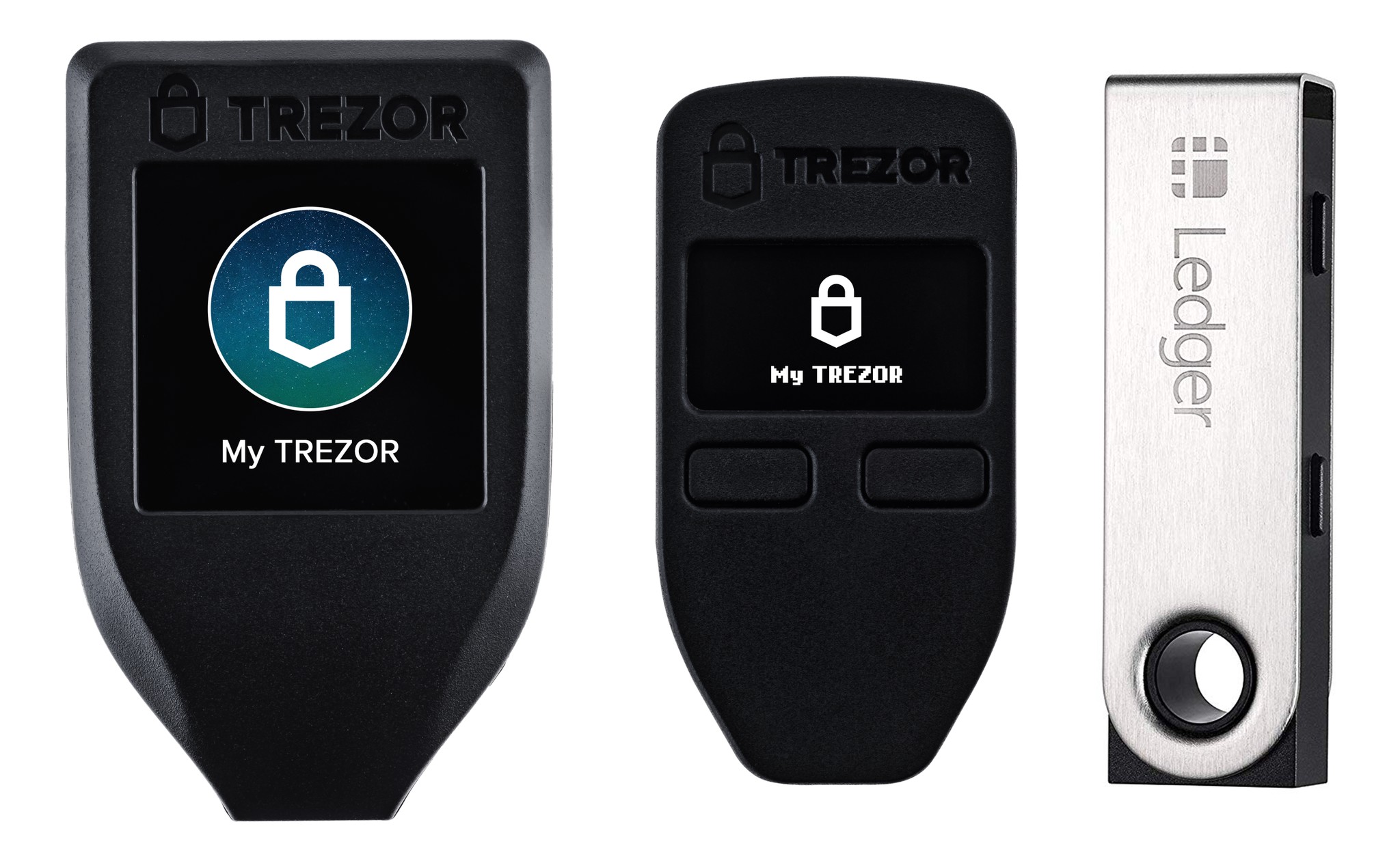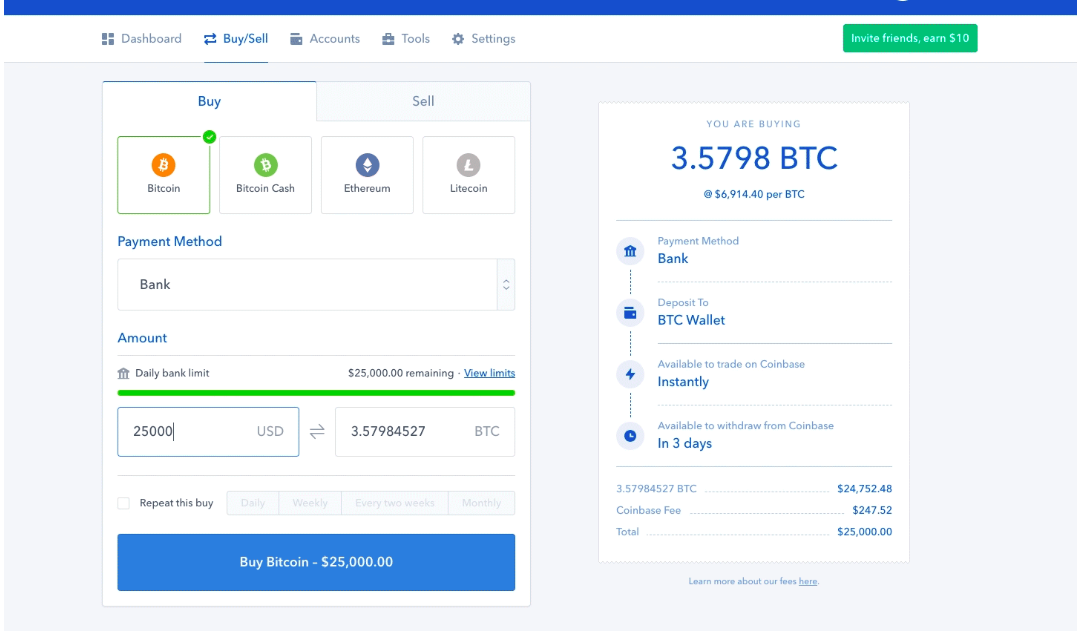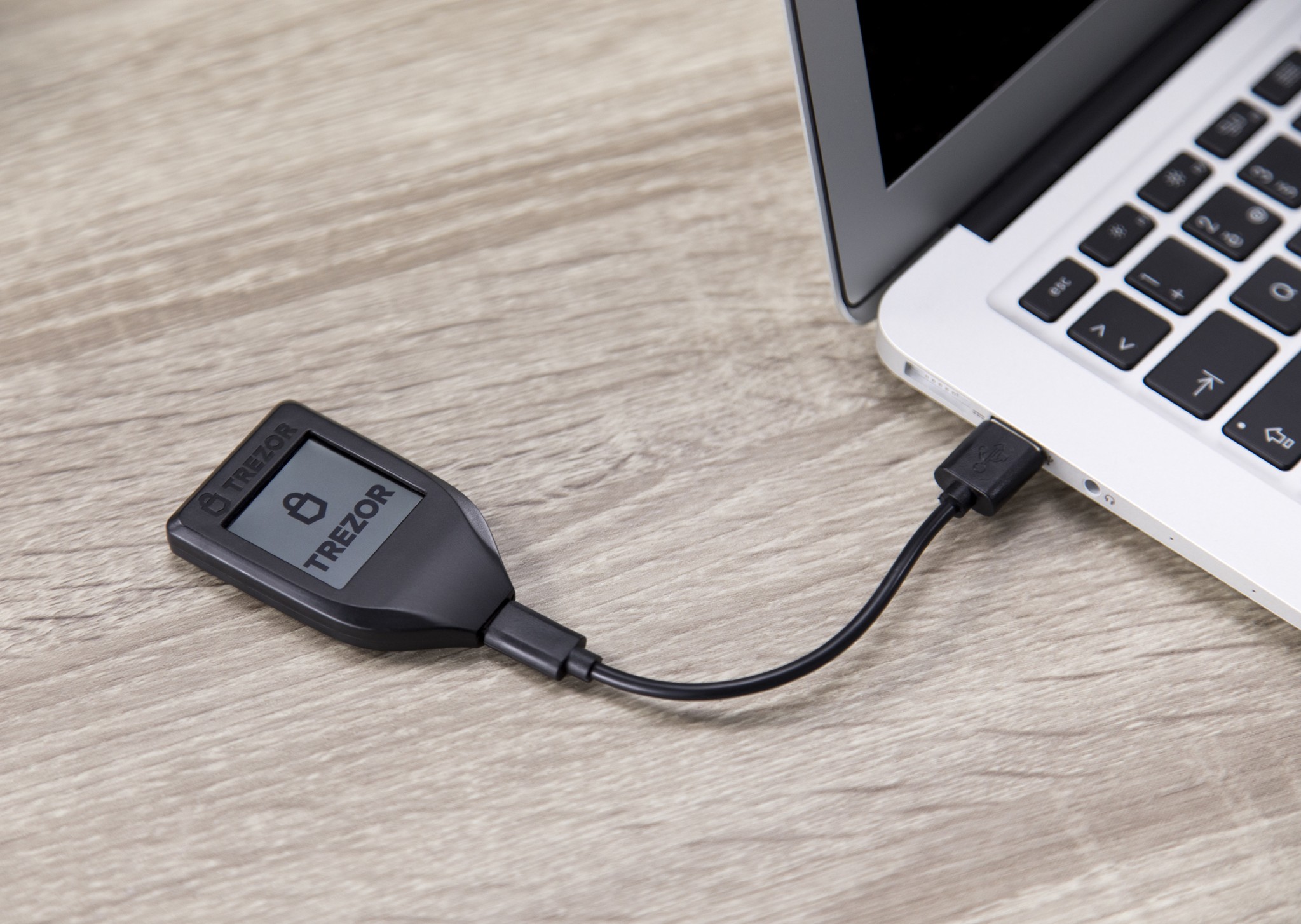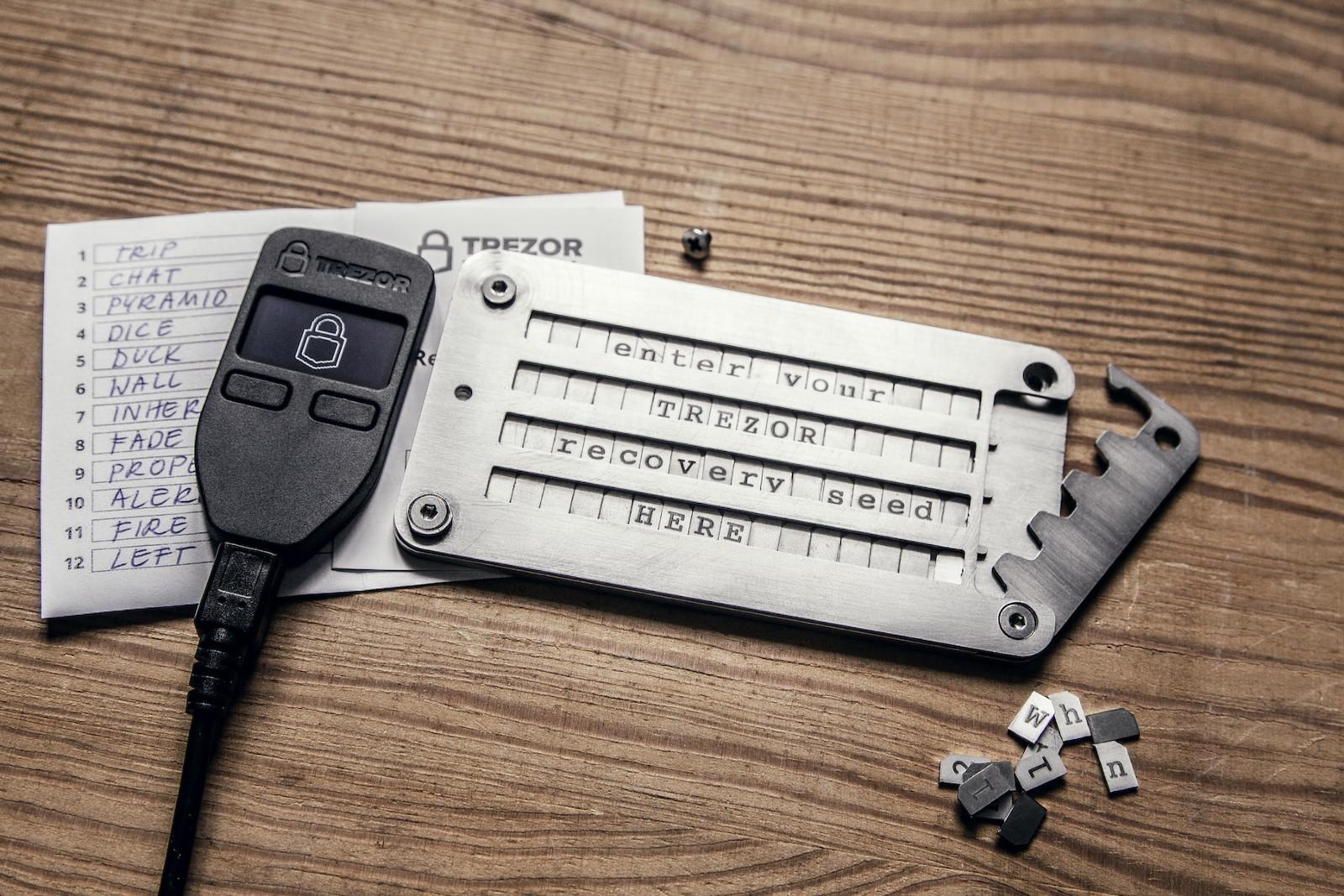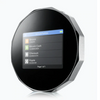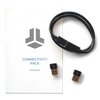Why You Need a Hardware Wallet
Any serious investor of cryptocurrency will want to use a hardware wallet. Hardware wallets allow you to easily make transactions, but do not have the security risks of online wallets, exchanges and software wallets. Hardware wallets also have security advantages over other cold storage methods such as paper wallets, because the private keys of hardware wallets always remain completely offline.
This article compares the different types of wallets and explains why hardware wallets are the most secure method for storing cryptocurrency.
Private Keys
In order to understand why hardware wallets are the best method for long term storage of cryptocurrency, it is necessary for a brief explanation of private keys. Cryptocurrency technology uses private keys and public addresses. Public addresses are where cryptocurrency is received. You can think of them like email addresses that other people use to send you information and that you can use to send other people information. Private keys are codes that only you have access to, and that you use to access the cryptoassets that were sent to your public addresses.
Private keys are what give you ownership of your cryptocurrency. If somebody else gains access to your private keys then they can steal all of your cryptocurrency associated with those keys.
Exchanges and Online Wallets
Cryptocurrency exchanges are businesses that allow you to trade one cryptocurrency for another cryptocurrency or trade cryptocurrency for fiat currency. Exchanges are a great way for investors to purchase cryptocurrency, but they are not good for long term storage.
Of course, even when storing your cryptos securely offline, you'll want to choose a trusted online exchange to buy and sell coins. Abra, Binance, Coinbase, Coinmama, and LocalBitcoins are some of the top and most widely-used exchanges.
With an exchange, your private keys are stored by the exchange which use a combination of offline (cold) and online (hot) wallets.
The nature of exchanges makes them a target for hackers. When exchanges are hacked the private keys that are being stored online can be comprised. In 2017, Bithum was hacked and thousands of customer’s private keys were compromised.
Furthermore, the fundamental problem with using exchanges for long term storage of your cryptocurrency is that the exchange stores your private keys for you and you do not have access to them. This means that you do not have true ownership of your cryptocurrency. Your ability to retrieve your assets will be completely dependent on the exchange which can be subjected to hacks, random policies, outages and government regulations.
This is why it is essential to only use exchanges to purchase cryptocurrency. Once the transaction is complete, you should then send your assets to a wallet that gives you access to your private keys.
Examples of Exchanges and Online Wallets:
Coinbase – A beginner friendly exchange. Coinbase can connect to a U.S. bank account and can be used to buy Bitcoin, Bitcoin Cash, Ethereum and Litecoin with fiat currency. Coinbase offers The Crypto Merchant blog readers 10$ of free bitcoin when you sign up with this exclusive link. Remember, though, after purchasing coins on the exchange, transfer them to your hardware wallet immediately.
Binance – The world’s largest cryptocurrency exchange. Binance has over 130 tradeable cryptocurrencies and low transaction fees. It has its own coin called BNB that gives you discounts on transaction fees when crypto-to-crypto trading.
Coinmama – A beginner-friendly exchange that focuses on credit and debit card purchases. Coinmama instantly delivers Bitcoin, Ethereum, Ripple, Litecoin, BCash, Cardano, Qtum and Ethereum Classic to almost all US States, and most countries.
Abra – is an exchange that facilitates simple and instant investing and trading of 30 cryptocurrencies. When you download the Abra app with our exclusive The Crypto Merchant link, you’ll receive $25 in free Bitcoin after your first deposit with a bank transfer or AmEx, or 1.5% cash back when you exchange in cryptos.
LocalBitcoins – is a decentralized exchange based in Finland. In addition to facilitating online trades, it also allows users to meet up in person to buy and sell cryptocurrencies.
Join the 10,000+ crypto investors & enthusiasts and get 10% off your first order.
Software Wallets
Software wallets are applications that are downloaded on your desktop or mobile device. Many software wallets allow you to store your private keys offline, making them safer then online wallets and exchanges. However, since your computer or mobile device is still connected to the internet, you private keys can still be vulnerable to remote hacking. If your computer or mobile device has malware and viruses then it’s possible that your private keys could be comprised.
While storing your assets on a mobile device may be convenient, mobile devices are frequently damaged, lost or stolen, making them not an ideal method for long term storage of large amounts of cryptocurrency.
Examples of Software Wallets:
Exodus – Has a great user interface. Exodus encrypts your private keys and allows you to exchange coins.
Jaxx – A multi-cryptocurrency wallet that can be used with your mobile device, desktop, or internet browser.
Electrum – Contains advanced security and privacy features, and compatible with Trezor and Ledger hardware wallets
Paper Wallets
Paper wallets are when you print out your private keys and public addresses. When done properly, this method is safer then software or online wallets, because the private key remains completely offline and it is not stored on a device connected to the internet. However, paper wallets do have their weaknesses. If you generate a paper wallet from a website or from a computer connected to the internet, then your private keys can still be susceptible to malware that sends your private keys to a hacker. Even if you generate your paper wallet on an offline computer, you will still have to import the your private keys onto an online computer when you are going to make a transaction, and there will be the same risk of remote hacking.
Another disadvantage of paper wallets is that using them is time consuming and inconvenient. Managing the private keys require some technical knowledge and you will need to import the private keys every time you make a transaction. When used properly, paper wallets can be a secure method, but they are not ideal for either the average beginner or for investors making frequent transactions.
Examples of Paper Wallet Generators:
Mycelium – Allows you to generate paper wallets with a USB stick that you plug directly into your printer.
Bitaddress.org – Uses your browser’s JavaScript engine, so no keys are sent over the internet.
Bitcoinpaperwallet.com- Creates a printout of a colorful paper wallet and sells you tamper-evident stickers for sealing it shut.
Get free crypto investing & security guides, exclusive discounts, and more!
Hardware Wallets
Hardware wallets were invented to give cryptocurrency investors a storage solution that does not have the disadvantages of the other types of wallets. Hardware wallets are widely considered to be the most secure method because they are the only type of wallet where the private keys always stay completely offline.
Isolated Cold Storage
When you use your hardware wallet, you will need to plug the device into a computer that is connected to the internet. However, the private keys are generated offline in the hardware wallet’s microprocessor and they remain offline when you make transactions and view your balances. The microprocessor is securely isolated, so even if you plug your hardware wallet into a computer infected with malware, there will be no risk of having your private keys compromised.
Pin Code
Hardware wallets also have advantages which make them more accessible and convenient than the other types of wallets. When you are ready to make a transaction or view your balance, all you have to do is enter a 4-9 digit PIN code and then confirm the transaction on your device’s screen. This is clearly more convenient then paper wallets that require you to import an entire private key every time you need to make a transaction.
Recovery Seed
One of the best features of hardware wallets, is that all of your private keys and public addresses are stored on one “master key.” This master key is represented in the form of a recovery word seed which is a sequence of 12, 18 or 24 words. With this one recovery seed you can access all of your various cryptoassets.
When you first setup your device, a random recovery seed will be generated. It is essential that you copy this recovery seed down on paper or even better, on an indestructible steel backup device.
You must always keep your recovery seed completely offline, and stored in a secure location. If your hardware wallet is ever lost, stolen or damaged, you can easily recovery all of your cryptoassets by entering your recovery seed into another compatible hardware or software wallet.
Hardware wallets can generate an unlimited number of recovery seeds, so if your seed is compromised you can generate a new one and transfer your assets over to it. For more information on the recovery seed method, check out this article.
Multi-Cryptocurrency Support
Another great advantage of hardware wallets is their support for a wide range of cryptocurrencies. Trezor and Ledger wallets support all of the major coins (Bitcoin, Ethereum, Litecoin, etc.), dozens of alt coins, and all of the ERC20 tokens. So if you are an investor who has diversified your assets, you can store many or all of them on one hardware wallet, and with one recovery seed.
Security Strategies for Hardware Wallets
No security system can be 100% safe from all attacks, but if you understand what types of attacks on hardware wallets exist, you can easily prevent them from happening.
Purchase From an Authorized Seller
The first rule of using hardware wallets is to always buy them from an authorized seller. This prevents the risk of buying a used hardware wallet that may have been tampered with.
Secure Recovery Seed Offline
The most important rule when using hardware wallets is to always keep the recovery seed completely offline and in a secure location. Keep in mind that if somebody steals your recovery seed they can then easily steal all of your cryptoassets. This is why you should never take a picture of the recovery seed, never enter it into a computer or mobile device, and never upload it to cloud storage. The recovery seed should only be backed up on a piece of paper or engraved with “cryptosteel.”
Recover Your Cryptoassets if Your Hardware Wallet is Stolen
The final precaution you should take is to secure the actual physical device. If your hardware wallet is lost or stolen, the PIN code will prevent an unauthorized user from accessing your cryptoassets. However, if a hacker with engineering capabilities gets hold of your hardware wallet, it’s possible that they could extract the private keys. If your device is ever lost or stolen, you should enter in your recovery seed into another wallet as soon as possible and then send all of your cryptoassets to another wallet with a different recovery seed. Some users will purchase two hardware wallets, so they can be prepared in the event this happens.
Newcomers to cryptocurrency are understandably concerned about hacking, but as long as you secure your recovery seed and physical device, and buy from an authorized seller, you can rest assured that your cryptoassets on a hardware wallet are being stored by a near fool-proof system.
Examples of Hardware Wallets:
Trezor Model T – Trezor’s latest generation hardware wallet that has a touchscreen and supports a wide range of coins.
Trezor One – No touchscreen and not as much coins support as the Model T, but less expensive and still great for security.
Ledger Nano X - Ledger's latest generation hardware wallet. The Nano X can have up to 100 coin apps installed at once and is compatible with iOS and Android mobile devices.
Ledger Nano S – The most sold hardware wallet. The Nano S provides great security and supports a wide range of coins.
Keepkey – Compared to the Trezor and Ledger wallets, only supports a few coins, but provides just as good security and has a large screen for displaying transaction information.
Conclusion
Hardware wallets are a must have for cryptocurrency investors. They are the only method where the private keys remain completely offline which makes them immune to any type of remote hacking. The recovery seed method of hardware wallets allows you to easily store and recover all of your cryptoassets. The Trezor Model T and Ledger Nano S are currently the most popular hardware wallets and they support a wide range of cryptoassets.
You can purchase a hardware wallet here.
For reviews of the top hardware wallets, check out these articles:
5 Essential Hardware Wallets to Keep Your Cryptocurrency Safe
Is Trezor Model T The Best Wallet Out Right Now?
Trezor Model T Versus Trezor One
JOIN NOW AND GET 10% OFF YOUR FIRST ORDER
Join the 10,000+ crypto investors & enthusiasts who receive exclusive discounts, crypto investing and security guides, digital privacy protection tips and more every week.



